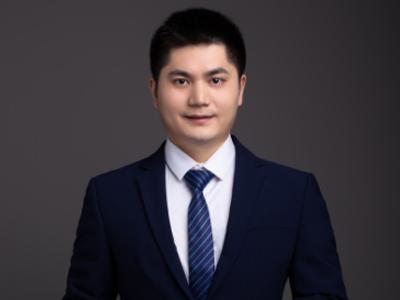Faculty
Self-introduction
Dr. Wen Zhou did his PhD study at the Institute of Botany, Chinese Academy of Sciences. As a Benacerraf postdoctoral fellow in immunology and through a Charles A. King Trust Postdoctoral Fellowship at Harvard medical school and the Dana Farber Cancer Institute (2017–2021), Dr. Wen Zhou has given his extensive experience and training in the field of immunology. His research in postdoc has particularly focused on cGAS-STING immunity pathway as a paradigm for anti-pathogen and anti-tumor signaling. His research provides mechanistic advances in our understanding of how immune cells sense cytosolic DNA in health and diseases.
After joining SUSTech as an assistant professor in April 2021, Dr. Zhou’s lab will seek to reveal the importance of phase separation as a new form regulation in immunity, and to discover new nucleic acid receptors.
Research Interests:
We are working to understand the molecular mechanisms of innate immune responses to pathogens and tumor. Our lab use a combination of biochemistry, cell biology and structural biology to study two main questions: (1) How immune cells precisely control immune surveillance and regulation? (2) What’s the uncharacterized nucleic acid receptors? We are focusing on:
1. Phase separation as a new form regulation in immunity: Phase separation refers to the formation of liquid droplets in cells due to the weak interactions by numerous macrobiomolecules. Our knowledge of phase separation in immunity is quite limited. We are working to determine the important roles of phase separation in innate immune signaling.
2. Discover novel nucleic acid receptors: Nucleic acids (DNA and RNA), serve as dangerous signals, are able to induce potent immune responses. Nucleic acid receptors are the key components that control innate immune responses. Bioinformatics analysis suggests that a large number of potential nucleic acid receptors are waiting for discovery. We are working to screen and discover new nucleic acid receptors to understand nucleic acid immunity across evolution.
Professional Experience:
◆ 2021.04-Present: Assistant Professor (Southern University of Science and Technology, School of Life Sciences)
◆ 2017.07-2021.03: Postdoctoral Fellow (Harvard Medical School / Dana-Farber Cancer Institute)
Educational Background:
◆ 2009-2017: Doctorate in Developmental Biology (Chinese Academy of Sciences, Institute of Botany)
◆ 2005-2009: Bachelor of Science in Biological Technology (University of Science and Technology Beijing)
Honors & Awards:
◆2020 Charles A. King Trust Fellowship Award, USA
◆2019 Benacerraf Postdoctoral Fellowship Award, USA
◆2019 Harvard Chinese Life Sciences Distinguished Research Award, USA
◆2018 Distinguished Dissertation Award, the Chinese Academy of Sciences
◆2017 CAS Presidential Scholarship, the Chinese Academy of Sciences
Selected Publication:
1. Zhou W*, Whiteley AT*, de Oliveira Mann CC, Morehouse BR, Nowak RP, Fischer ES, Gray NS, Mekalanos JJ, Kranzusch PJ (2018). Structure of the human cGAS–DNA complex reveals enhanced control of immune surveillance. Cell174: 300–311. PMID: 30007416 (* co-first authors)
2. Zhou W, Mohr L, Maciejowski J, Kranzusch PJ (2021). cGAS phase separation inhibits TREX1-mediated DNA degradation and enhances cytosolic DNA sensing. Molecular Cell81: 739–755. PMID: 33606975
3. Zhou W*, Lu Q*, Li Q, Wang L, Ding S, Zhang A, Wen X, Zhang L, Lu C (2017). PPR-SMR protein SOT1 has RNA endonuclease activity. PNAS114: E1554–E1563. PMID: 28167782 (* co-first authors)
4. Zhou W, Whiteley AT, Kranzusch PJ (2019). Analysis of human cGAS activity and structure. Methods in Enzymology625: 13–40. PMID: 31455523
5. Barnett KC, Coronas-Serna JM, Zhou W, Ernandes MJ, Cao A, Kranzusch PJ, Kagan JC (2019). Phosphoinositide Interactions Position cGAS at the Plasma Membrane to Ensure Efficient Distinction between Self- and Viral DNA. Cell176: 1432–1446.e11. PMID: 30827685
6. Wang X, Yang Z, Zhang Y , Zhou W, Zhang A, Lu C (2020). Pentatricopeptide repeat protein PHOTOSYSTEM I BIOGENESIS FACTOR2 is required for splicing of ycf3. J Integr Plant Biol11: 1741–1761.PMID: 32250043
7. Zhang L, Zhou W, Che L, Rochaix JD, Lu C, Li W, Peng L (2019). PPR protein BFA2 is essential for the accumulation of the atpH/F transcript in chloroplasts. Frontiers in Plant Science10: 446. PMID: 31031784
8. Wang L, Li Q, Zhang A, Zhou W, Jiang R, Yang Z, Yang H, Qin X, Ding S, Lu Q, Wen X, Lu C (2017).The phytol phosphorylation pathway is essential for the biosynthesis of phylloquinone, which is required for photosystem I stability in Arabidopsis. Mol Plant10: 183–196. PMID: 28007557
9. Zhong L, Zhou W, Wang H, Ding S, Lu Q, Wen X, Peng L, Zhang L, Lu C (2013). Chloroplast small heat shock protein HSP21 interacts with plastid nucleoid protein pTAC5 and is essential for chloroplast development in Arabidopsis under heat stress. Plant Cell25: 2925–2943. PMID: 23922206



